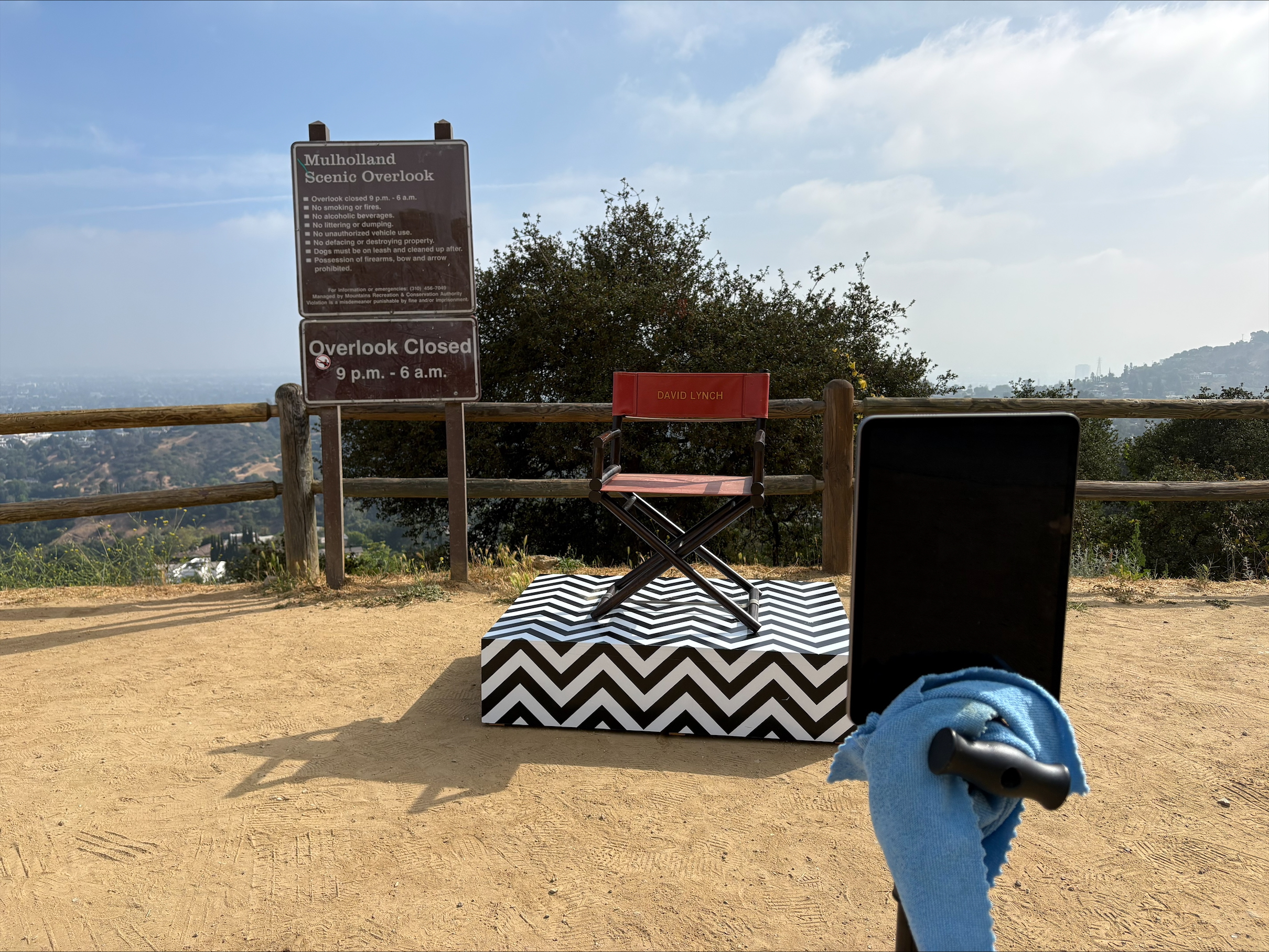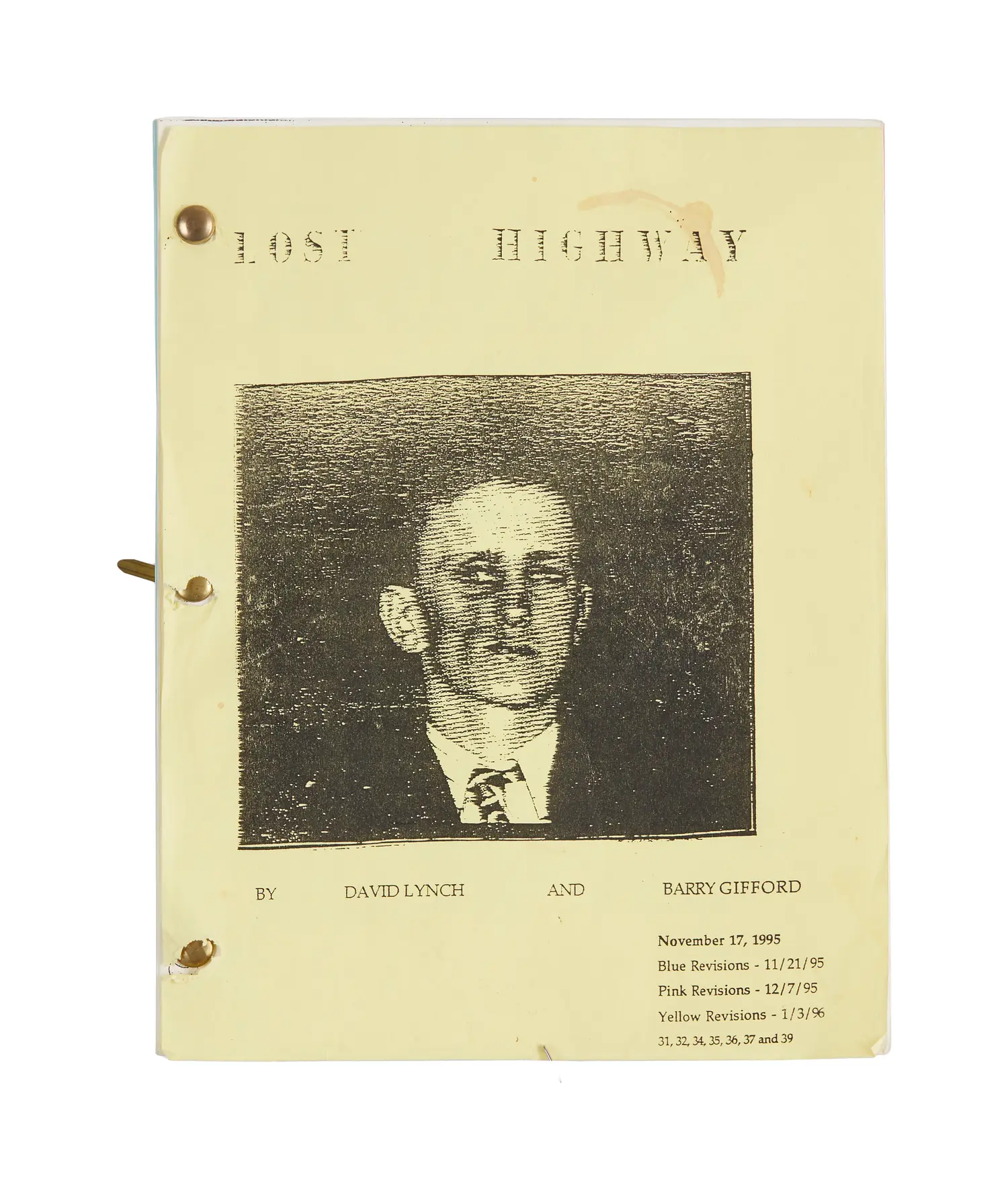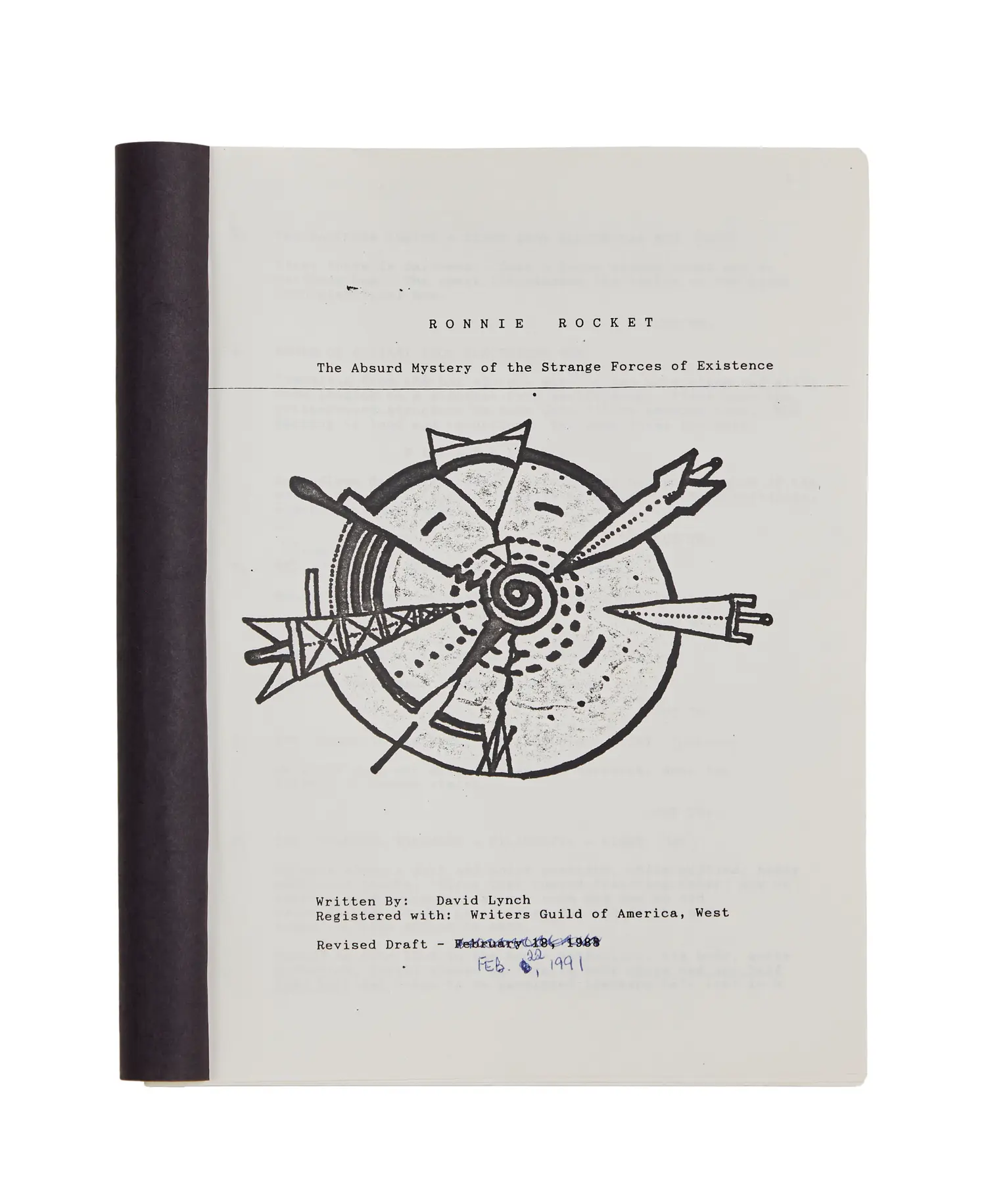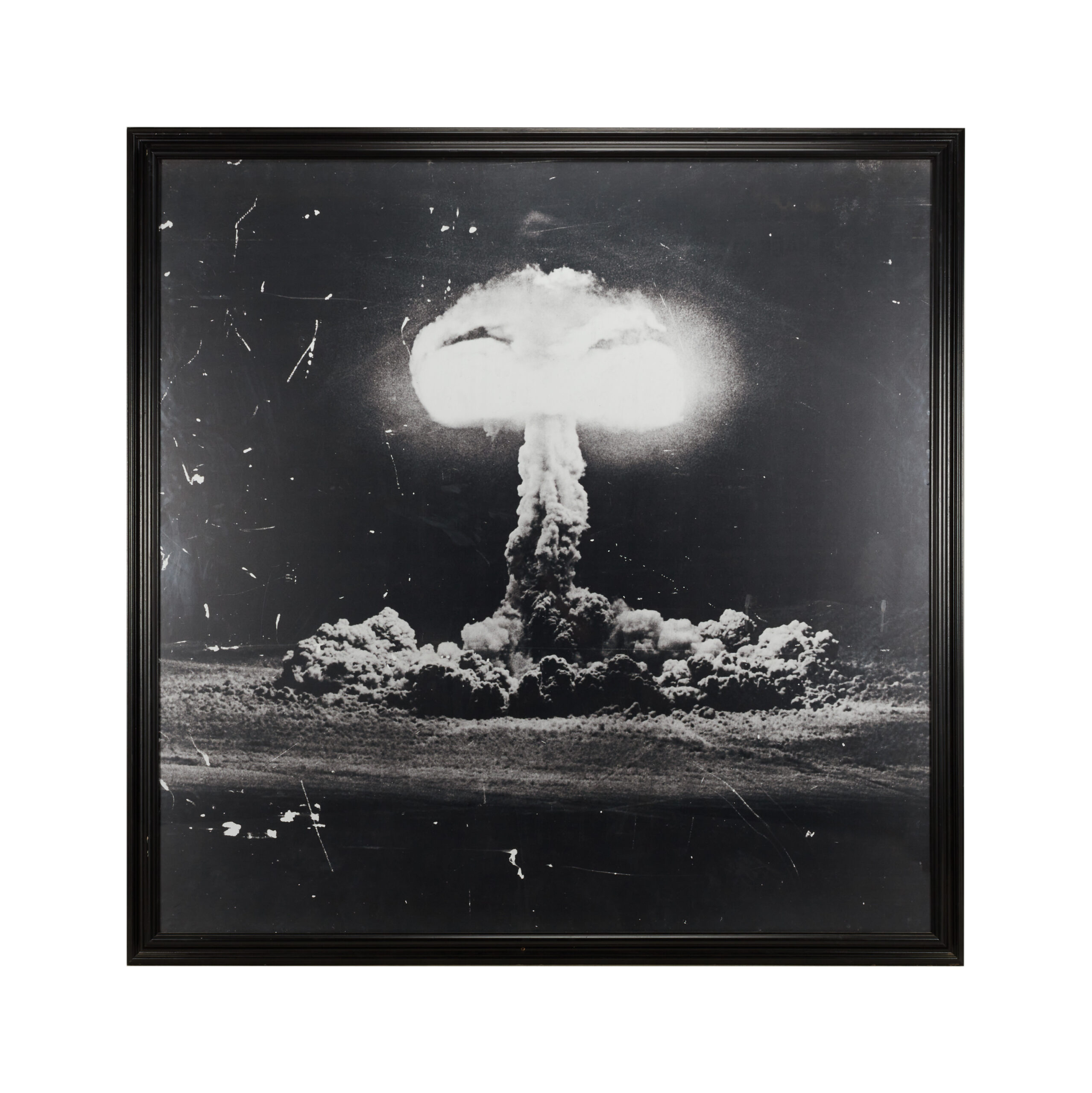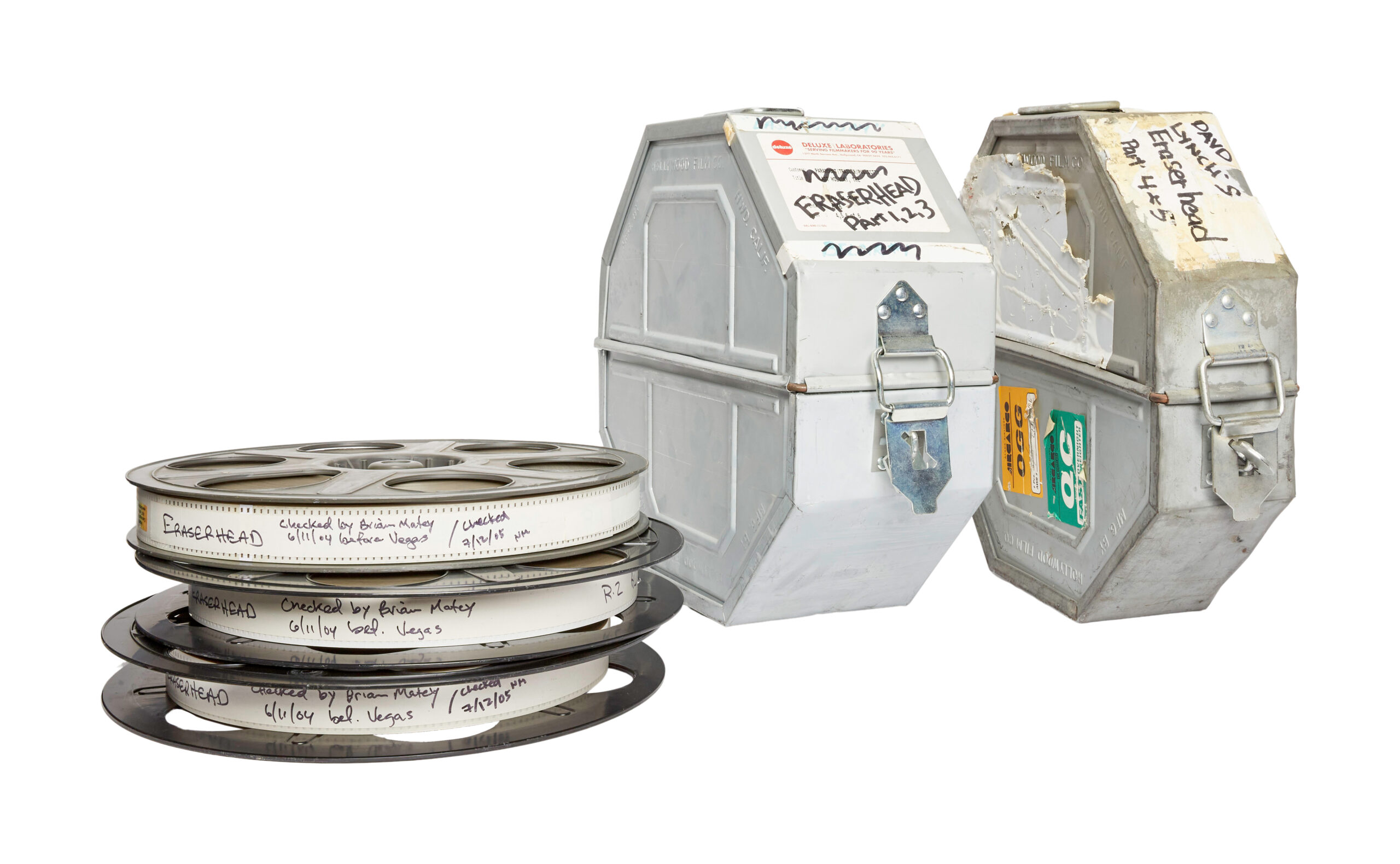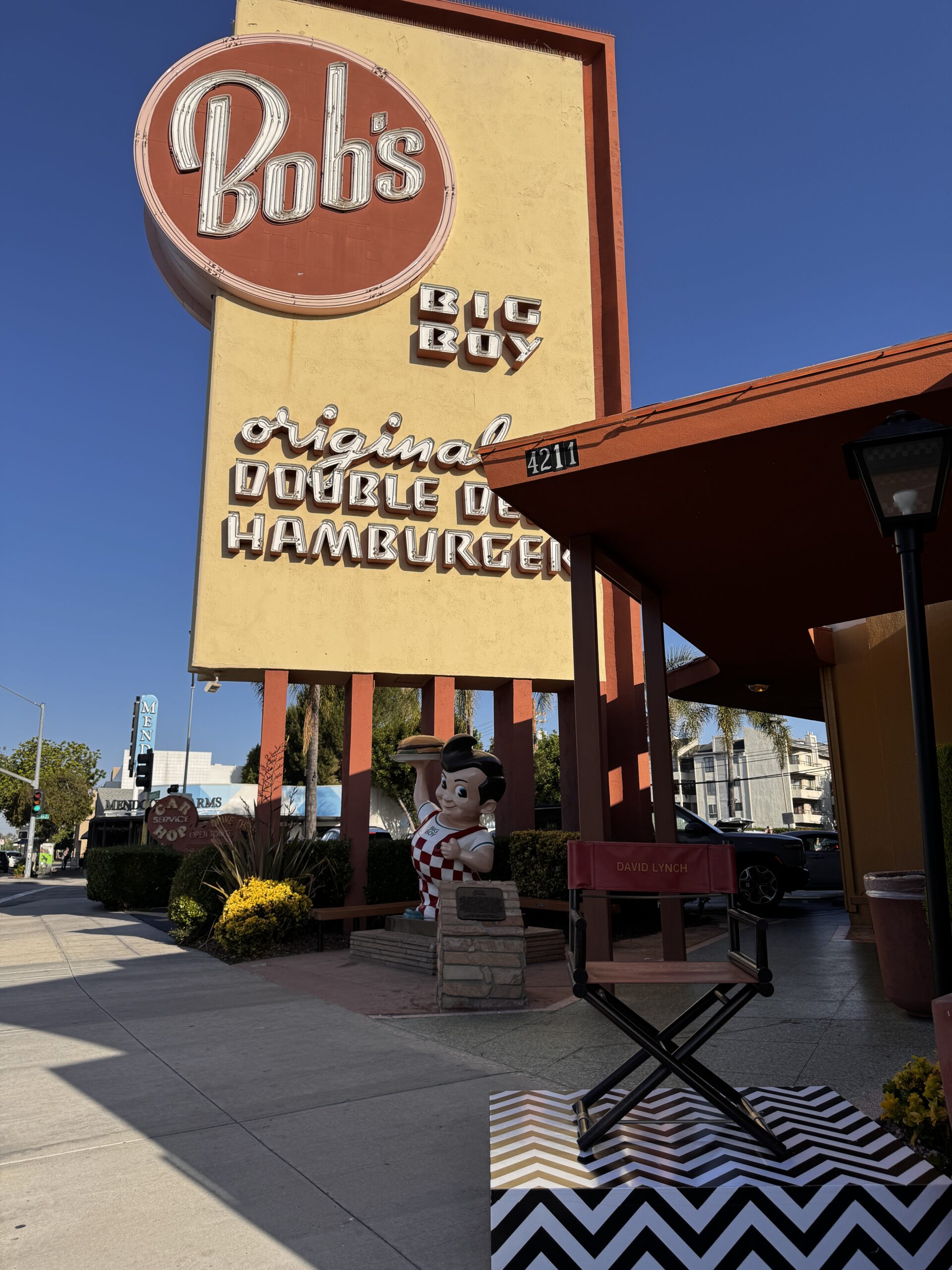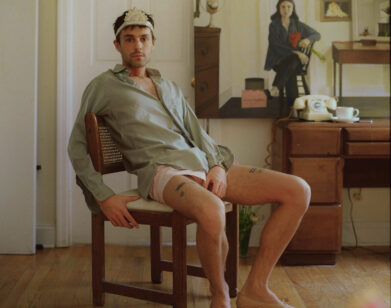GOING TWICE
Want to Own a Piece of David Lynch? It Will Cost You.
The third lowest sale price recorded at the David Lynch auction, which concluded on June 18th, just over five months out from director’s death at age 78, was for three blu-rays of his second feature, The Elephant Man (1980), and a set of promotional buttons: $1,300. In the film, John Merrick, the titular elephant man—disfigured and debilitated from birth, his skull swollen like a half-popped kernel of corn, his back covered in tumorous gnarls, his speech spitty and impeded, his heart preternaturally pure, his mind elegant and sure, this man, accosted and then cornered in a washroom by a repulsed mob of Victorian Englishman—announces: “I am not an elephant; I am not an animal: I am a human being,” a declaration which I imagine myself repurposing in a future confrontation with embodied AIs to whom I might register as a disgusting, unaccountable meatsack. In his moment of death, Merrick glimpses his beautiful mother in the void. She recites lines from a Tennyson poem: “Never, oh! never, nothing will die…”
After their deaths, the possessions of famous artists become valuable, coveted. Lynch’s auction—properly, Julien’s Auctions and Turner Classic Movies (TCM) Presents “The David Lynch Collection”—brought in $4.25 million; a lot of 11 scripts for Lynch’s unfinished project Ronnie Rocket sold for $195,000, as did a script for Lost Highway.
The very last line of Twin Peaks: The Return is also spoken by a mother. Sarah Palmer’s sinister, disembodied voice drawls to her daughter, “Laaaura,” and Laura screams into the night: nothing will die. The image of the mother, of her love and her possible malice, is a sacred promise and a terrible oath carried for life. A framed photograph of a nuclear bomb featured in The Return went for $45,500.
Lynch last acted in Steven Spielberg’s The Fabelmans (2022), where he played another director, John Ford, who briefly advises the ambitious young protagonist on filmcraft. In my favorite Spielberg film, AI (2001), a young-looking but unaging android named David flees a future society repelled by his artificial but too-real humanity. Hunted, taunted, hated, feared, he is a freak, and like Merrick he dreams at the end of all things of reuniting with his beloved, long-gone mother. His dream lasts longer than Merrick’s but not long enough, never long enough. A window card from a 1979 Broadway production of the Elephant Man story and a Japanese film release program fetched $3,575.
Famously, AI began life as a Stanley Kubrick project. “Stanley Kubrick is one of my all-time favorite filmmakers, and he did me a great honor early in my career that really encouraged me,” Lynch writes in Catching the Big Fish (2006), a short book about his life and creative process that doubles as a mostly persuasive if pushy advertisement for transcendental meditation. While filming Elephant Man in England, Lynch learned that Kubrick had described the former’s debut, Eraserhead (1977), as his “favorite film” and screened it for some producers. In Eraserhead, an oddball man entertains infanticidal urges against his grotesquely deformed offspring before finally slaughtering the wretched creature. The winning bid for Lynch’s personal 35mm print of Eraserhead cleared $52,000.
In his 1996 essay, “David Lynch Keeps His Head,” David Foster Wallace posits that Frank Booth, the psychotic rapist who huffs mystery gas in Blue Velvet (1986), is, “in a certain, deep way, Jeffrey’s father, that the Darkness inside Frank is also encoded in Jeffrey,” the film’s boyish, “gee-whiz” hero. “Jeffrey’s discovery not of dark Frank but of his own dark affinities with Frank is the engine of the movie’s anxiety,” Wallace continues. One’s capacity for Good and Evil is revealed to the parent in the body of the child, to the child in the person of the parent, and so they hate and love each other forever. I’m speaking generally. A collection of vinyl albums related to Blue Velvet and owned by Lynch brought in $5,850.
When a parent dies, their children look at the deceased’s effects and wonder what to do with them. First, they mourn. But between their contemplations of the hole that has opened in their lives and that will Never, oh! never be filled, they may decide, not unreasonably, to disperse a portion of the dead man’s belongings to fans, to institutions, to whoever wants these artifacts and can pay. So a Coach-made, personalized director’s chair in red leather—scuffed and weathered where it has apparently been sat upon, and emblazoned with the name DAVID LYNCH—finished at $91,000. In the days preceding the auction, the chair was photographed on Mulholland Drive and at four other locations in L.A. County, including Bob’s Big Boy in Burbank and the headquarters of “a storied Hollywood trade publication,” i.e. Variety. In the pictures, the chair stands atop a black-and-white, zigzag patterned plinth. Hovering above it is an empty space.
———

